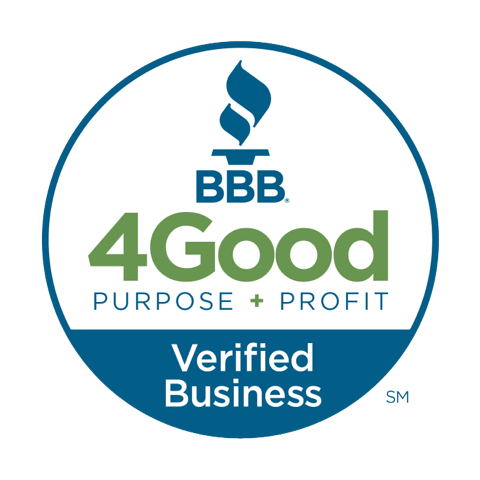 Clients, who initiate contact with an agency to learn more about becoming parents through Surrogacy and/or Egg Donation, are referred to, in our industry, as Intended Parents or (IP’s). A Surrogate is known as a (GS or GC) and an Egg Donor is referred to as an (ED). By using these terms, it keeps things simple.
Clients, who initiate contact with an agency to learn more about becoming parents through Surrogacy and/or Egg Donation, are referred to, in our industry, as Intended Parents or (IP’s). A Surrogate is known as a (GS or GC) and an Egg Donor is referred to as an (ED). By using these terms, it keeps things simple.
There are two completely different types of Surrogacy arrangements; Traditional and Gestational. Traditional Surrogacy is where the Surrogate Mother is artificially inseminated with the sperm from the Intended Parent (or donor sperm) and the Surrogate is considered the biological mother to the baby she is carrying. The Surrogate has a 50% genetic tie to the child she gives birth to. With the technology available today and the process of IVF so successful, most people who select Surrogate Mothers prefer to choose a Gestational Carrier.
Gestational Surrogacy allows the Intended Parents to use their own genetic material (eggs and sperm) and the Surrogate merely assists them by providing her uterus in which the child will grow to term in 9 months. In cases where the Intended Mother cannot provide her own eggs, she is able to select an Egg Donor who has similar features as she. There is much more flexibility in Gestational Surrogacy, as well as the increased chances of success.
In Gestational Surrogacy, the physician is able to place more than one embryo into the Surrogates uterus to increase the changes of a successful pregnancy. With Traditional Surrogacy, quite often multiple attempts are required to achieve the same result. With Gestational Surrogacy, there is also the increased chance of a multiple pregnancy.
Twins are common in IVF and through Surrogate Alternatives, we have seen a 40% twin rate or higher on a yearly basis for the last 6 years.
INVESTIGATING THE AGENCY’S CREDENTIALS:
There are many agencies able to assist you, in different states and countries. However, always make sure to do your due diligence and investigate each agency completely before committing to them financially or emotionally.
The following are things you should make sure to ask:
- How long have they been in business, (specifically, the date they received their business license)
- How many clients have they assisted and how many babies have been born through their agency
- Do they have any pending lawsuits or have they been sued in the past
- Are they a member of the Better Business Bureau (BBB), this organization is key to a good company
- Do they list all expected costs on their Fee Sheet or are there hidden costs not listed or explained
- Have any of their clients had problems returning to their Country after their child was born
- Do they have a reference list of previous clients that are willing to speak with you
- Make sure their website shows the history they say they have
- Is their staff large enough to accommodate you and provide you with the service you deserve
- Do they have Available Surrogates, if so, can they rematch you right away if your surrogate backs out
- Do they carry business insurance-Most agencies don’t and they should, this is very important
CHOOSING TO RETAIN THE AGENCY:
Most agencies require a signed retainer agreement before even disclosing the number of available surrogates or allowing you to view their profiles. This is common practice and done because agencies want to know you are serious about the process, however, if you like an agency and this is the only thing holding you back, be sure to tell them you want to see profiles of who they have available before committing to them financially. A good agency will be accommodating to your needs.
Once you are ready to retain the agency, they will usually request that you return the completed questionnaire/profile, submit photos to include with your profile, medical release authorization for each party, the retainer agreement and pay the required agency fee. Once all of these steps are done, the agency puts your profile together and shares it with the surrogate you have an interest in.
THE SURROGATE SELECTION PROCESS:
Each Intended Parent has a different idea of how to pick a surrogate mother or what they are looking for in one. For many, a choosing a Surrogate with insurance that will cover her maternity and delivery care is important, also, a Surrogate who doesn’t work, (no lost wages) or a Surrogate who has only delivered vaginally in the past (less chance of a C-section). The list goes on and on, but the key on how to choose surrogate mother is to ask the case manager their idea of who would be a good fit for you. They have read both your profile and the Surrogates, many times met the Surrogates in person and after meeting or talking with you, they have a pretty good idea of who you would be compatible with. Then, go from there on your requests, until you have 1-2 strong candidates selected and are ready to initiate contact. The case manager will arrange for a phone call between you and the Surrogate or if you are in town or live locally, an in-person meeting is always preferred. Nowadays, with Skype, many matches are made this way.
THE LEGAL PROCESS TO MAKE YOUR MATCH OFFICIAL:
Now that you have selected a Surrogate, she will undergo the screening process where she will have a criminal background check conducted, she will meet with a psychologist who will interview her, an infertility doctor who will examine her uterus, review her pregnancy and health history and do a complete blood and urine panel and her attorney, with whom will review and assist her in agreeing to the contract terms. An agency should provide your attorney, who is referred to as the drafting attorney, with a document called or referred to as a SBP (Surrogate Benefit Package). This document explains in detail, the fees the Surrogate is entitled to receive and during what time periods. They incorporate this document into the legal agreement to ensure the agency’s fee structure remains intact and the fees you have been informed of do not change.
If you select a proven Surrogate, some of her fees WILL be higher, so always ask the agency for the fees she is requesting, so you are not surprised later on.
Once the legal contract is signed by you and her, the infertility clinic will give you a cycle calendar with the medication start dates as well as the estimated date of embryo transfer or insemination attempt (for a Traditional Surrogate).
SUGGESTED LINKS:
1. Surrogate Alternatives, Inc. (SAI)
2. Internet Health Resources (IHR)









Leave a Reply